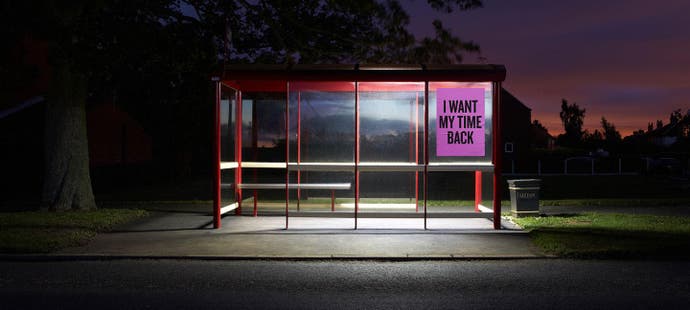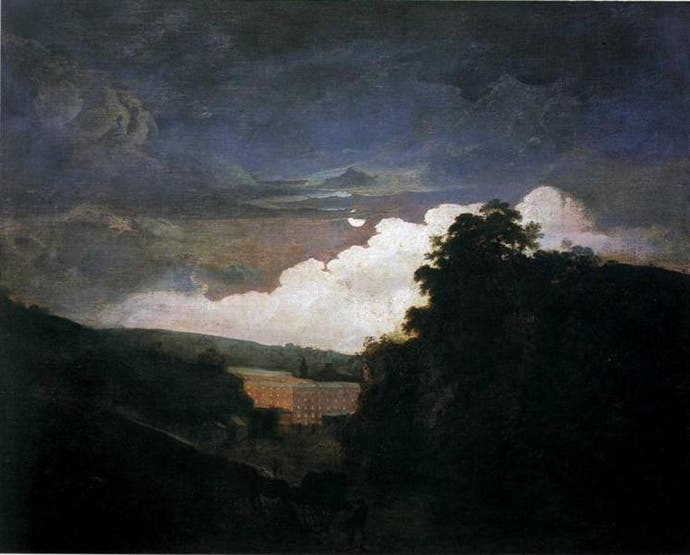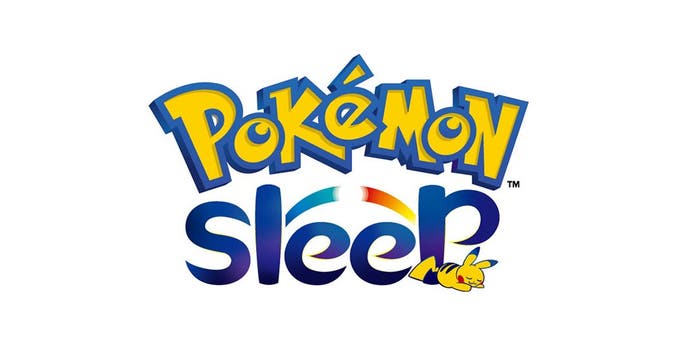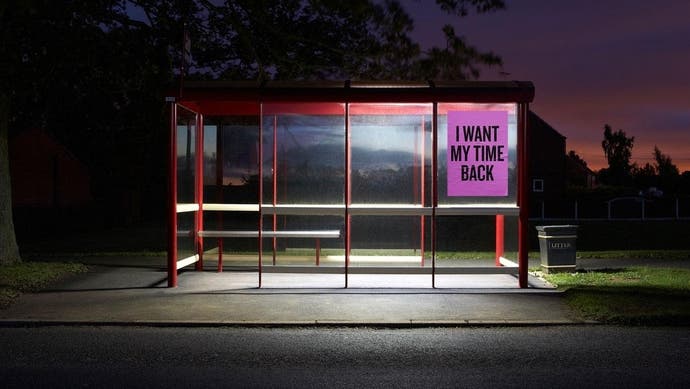Games were nowhere and everywhere in an exhibition about the war against rest
Pokémon Sleep.
Over the Christmas break I gave up Pokémon Go. It wasn't on purpose - in fact I think I actually stopped playing a little earlier than that, missing a community day for some weekend commitment or other and then all of a sudden falling off the wagon entirely. But even if it was an accidental cold turkey, quitting has given me a strange sense of pride. I love Pokémon, and I think Pokémon Go is, for the most part, pretty great. It gets you out and about, it's wonderfully social, it's a complete change of pace from regular mobile gaming and, obviously, it is still Pokémon. But all the same I am mighty glad to see the back of it, because for all its pleasures Pokémon Go's grip on my attention and time has, quite frankly, felt rather tyrannical.
To really keep the pace in Pokémon Go you must log in and complete not one, not two, but three different tasks, daily, as a minimum. On top of the regular loop there are then rotating legendaries and rotating research rewards, changing each month or so. There are rotating raids and raid days and raid hours. There are special bonus weeks and weekends; special quests and special cosmetics; special, entirely functionless versions of Pokémon you already have that are wearing special hats. In one sense it's brilliant: an extraordinarily continuous flow of things to see and do in a game that, as a collectathon, has a finite limit on the number of creatures to catch. At the same time, for anyone caught in the loop but unwilling or unable to fully, wholly commit to it as their sole game - or more than that, their sole hobby - it can be an absolute disaster.

The result of that disaster is people like me: lovers of Pokémon, who grew up with it and failed to fully grow out of it, now with a bit of disposable income and an hour a day of uncolonised time spent walking to and from work making them the primest of marks - but who are instead thoroughly burnt out. It's a strange, oddly alienating feeling. Pokémon Go is far from the only game to do this - it's not even the only game to do it to me personally, as a football fan and player recently freed from the compulsions of FIFA Ultimate Team - but it does feel like a fairly recent phenomenon.
All of this struck me especially hard when I was at an exhibition, over the winter break, called 24/7. It's at Somerset House in London and is still showing for a few more weeks, if you want to go along, which I think you should, because although it's mostly a collection of slightly on-the-nose, Banksy-esque jabs at society and modern digital life, it is a remarkably, and somewhat terrifyingly potent criticism of where we seem to be heading in the world of games.

The theme of 24/7 is this idea that the traditionally private, recuperative parts of the day are under attack. Working days should follow the rule of three eights - eight hours work, eight hours recreation, eight hours rest - but, the blurb often goes, with the advance of technology, the advent of late capitalism and the endless march of progress that is no longer the case. At times the work on display is incredibly convincing. Arkwright's Cotton Mills by Night, for instance: a 1792 oil painting of early industrialisation - orange light from a factory's windows piercing, through the serenity of nighttime country fog - is striking. A simple landscape marking the first sign that the third eighth of the day, rest, has been successfully infiltrated in the capitalist's quest for productivity. At others it's a little blunt: mechanical birds in literal skinner boxes; slightly tenuous links to cryptocurrency; a video game-based installation about drone strikes, where two of you sit at two recreations of a drone pilot's station, opposite each other, playing a sort of asynchronous game of battleships where one hops around a little virtual farm and the other tries to nuke them out of existence from the sky, a la Death From Above. (It was included because in the "game" the strikes take place sort of in the afternoon, which is sort of a time of rest, although I feel like the salient point to be made about drone strikes is that they're drone strikes - they're sort of self-evidently bad). But again, all of this led back to something more pertinent to the world of video games. Somehow, somewhere, things turned upside-down, and games started requiring you to fit your life - your time of recreation and rest - around them.
This, obviously, goes far beyond poor Pokémon Go, which I feel I've unfairly singled out as a personal example. The phenomenon is far more widespread, the rise of it unsurprisingly coming with the rise of the modern game-as-a-service, which is not a problem in itself - I'd rather squash the crunch associated with the development of annualised games, say, for a single, ever-updating version - but it is a symptom of the trend. Making and maintaining luxurious, prestige, blockbuster games is expensive, for one, but beyond that there's seemingly a desire for never-ending, reliable, growing profit off the back of them. The result is we're back, again, to the Cotton Mills of 1782. Last year, reports emerged of 70-hour weeks at Fortnite studio Epic Games. Bioware faced similar accusations about crunch culture in the aftermath of Anthem, EA's failed attempt at replicating the success of Activision-Blizzard's Destiny, itself a stab at bringing service-model MMORPGs to the millions of players on consoles.
While everyone, seemingly, wants their own Fortnite - why wouldn't they? - what that really means is everyone wants perpetual motion. The end goal is a game that earns enough money over time to pay for its development over time, which maintains its ability to earn enough money over time, to pay for the development... and so on and so on, with enough profit on top to keep the share prices rising and the executive bonuses tied to them flowing.

"Who's being a little too Banksy now?" I'm sure you're justifiably asking - but the problem in games goes beyond all that traditional, somewhat overused anti-executive rhetoric, and beyond even the abhorrent culture of crunch. It's landing, now, in the laps of the players themselves, because when you're not paying up front for a game you are instead paying with your attention. If a service is free, the product is you, as the popular saying goes. It's not quite as insidious as that just yet, but fewer big games are competing for your £40 than they are for your eyeballs. You pay £9 for a Battle Pass but to get what's in it, you have to put in the work - maybe a hundred-odd hours of it, give or take (more than an entire working week at Epic!) - and that means you can't put in the work elsewhere. Ten hours a week on Fortnite means ten fewer hours you can spend on FIFA, or Apex Legends, or Destiny, or Pokémon Go. Beyond that it's ten fewer hours to spend on watching Netflix with a partner (Netflix lists Fortnite as a major competitor), ten fewer hours on another, entirely different hobby or skill. Ten fewer hours on silence, or rest, or sleep.
When 24/7 points to the tyranny of the smartphone, and social media, and always-available messaging as direct attacks on the time humans need for balance and wellbeing, the point feels a little rote, even if it is valid. People have heard the argument, I think, and they tend to agree. The worry I had, coming away from the exhibition, is that the entire place could have been filled with video games alone, and if anything made a better point: the time we single out for play is filled with games that feel like work, and the time for rest is now just more time for play.









